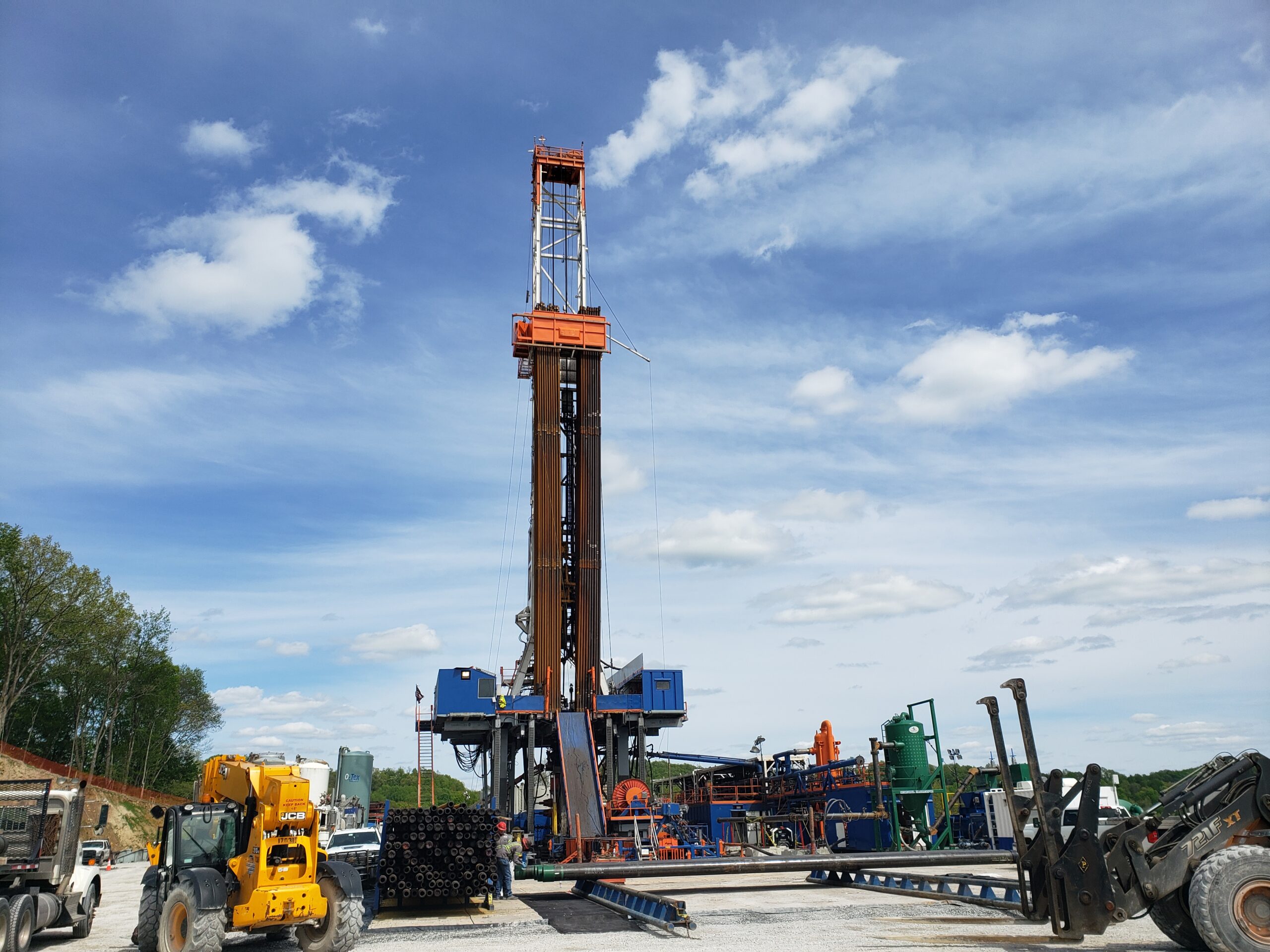MORGANTOWN –Northeast Natural Energy has taken a leading step among area natural gas producers to seek dual certification for adherence to what’s called ESG standards: Environmental, social and governance. These standards cover a range of issues from emissions to corporate governance.
“We’re very aware of the environment and the concerns that everyone has about how we treat the environment,” said President and CEO Mike John, adding that it’s critical to the company and the dry natural gas industry to step up and be measured and accountable for what they produce and how they produce it. “We believe we’re part of the solution to cleaning up the air, not part of the problem.”
Northeast is headquartered in Charleston, with a Morgantown office. It has extensive operations in Monongalia County. Two of its Morgantown Industrial Park wells are Marcellus Shale Energy and Environmental Laboratory research projects conducted by the National Energy Technology Laboratory, WVU and Ohio State University.
Responsible Energy Solutions will audit Northeast’s production pertaining to two separate certification standards.
NNE will use Baker Hughes LUMEN Terrain continuous emissions monitoring technology at one of its well pads to certify production under the MiQ methane standard. Northeast explains that the standard is independent, third-party audited, quantitative, and graded across a sliding A-F scale based on three metrics: Methane intensity, company practices and methane detection technology deployment.
Equitable Origin is a nonprofit that certifies energy production in accordance with its EO100 Standard for Responsible Energy Development. Equitable Origin-approved assessors will evaluate Northeast against the five principles: Corporate governance and ethics; social impacts, human rights and community engagement; Indigenous Peoples’ rights; occupational health and safety and fair labor standards; and environmental impacts, biodiversity and climate change.
Matt Sheppard, owner of Sheppard Communication Strategies, notified The Dominion Post of Northeast’s efforts and said Northeast will be the first natural gas exploration company in West Virginia and the first in the entire Marcellus region to have its entire operating field certified under the dual standards.
Northeast is a dry gas producer, John said, meaning just methane. “We’re excited about the concept of measurement, of demonstrating to everyone, ‘Let’s all be measured, let’s all be transparent to what we do and how we do it.’ … We’re confident that we’re going to score very highly.”
Brett Loflin, vice president of regulatory affairs, said the EO100 will be an expensive process involving a self-assessment questionnaire. They also will send out an auditor, interview employees, look at the field operations and review documentation to substantiate the self-assessment.
The emissions portion is a pilot project and they may do some aerial surveys in the future, he said. “That will obviously help us in the long run, and we’ll know better how to improve and how to monitor our other pads.” He added that they have conducted leak detection and repair since they drilled their first well.
Northeast’s goal, they said, is to certify its entire field for ESG standards.
”This is an ongoing thing. This is not a one-time check a box,” John said. “This is a commitment to ongoing evaluation and measurement of what we do, to continue to refine our processes, to continue to improve what we do.”
In the context of environmental responsibility, The Dominion Post asked about a Department of Environmental Protection settlement of administrative consent order issued in June.
John said that the violations were tied to sediment in ephemeral streams associated with building a water line from the Monongahela River. A third-party consultant has been hired to inspect operations daily for erosion sediment control.
John said, “We understand and accept that the environmental impact of what we do is going to continue to be the focus of most folks, so we need to make sure it’s our focus.”
Northeast’s 2021 Sustainability Report notes that the company already has met its 2025 goal of reducing methane emissions to less than 1%. From 2017 to 2019, it has decreased emissions by 38% while increasing production 110%. All operations begin every shift with a pre-job safety meeting, and each employee and contractor has stop-work authority.
TWEET @dbeardtdp




